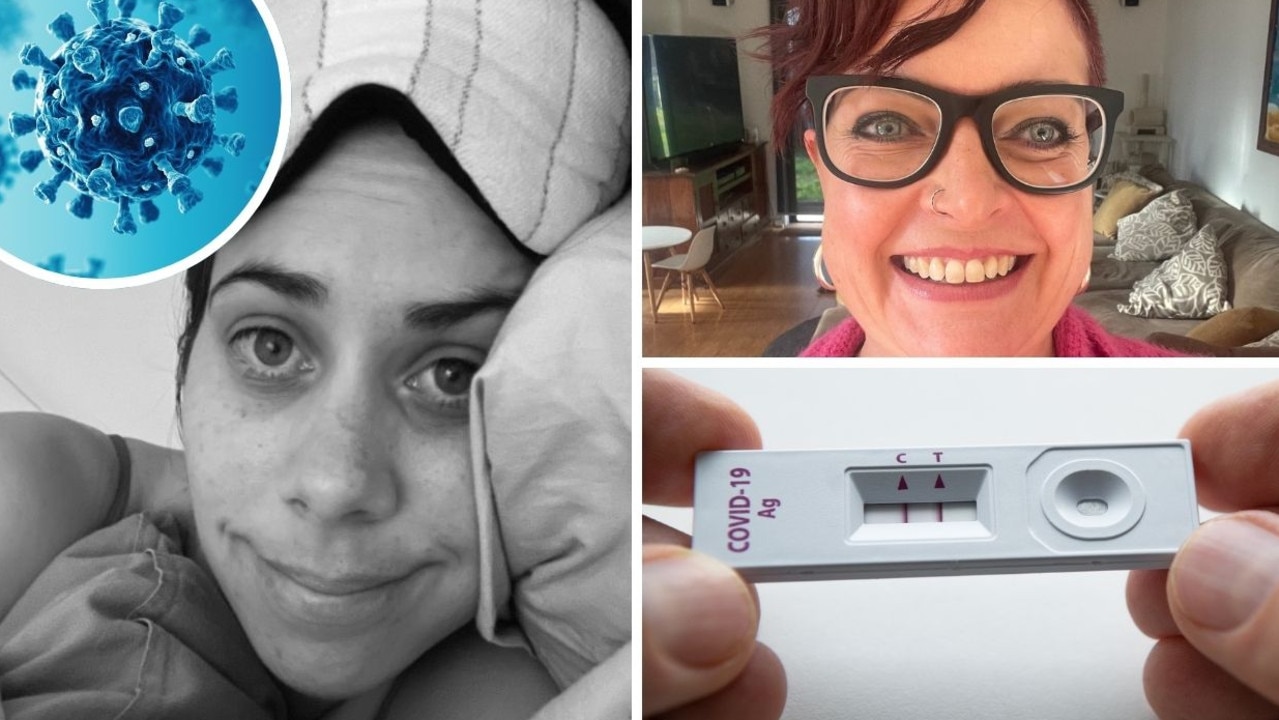Coronavirus world: Pfizer says vaccine for younger children 90 per cent effective
Pfizer has claimed its vaccine is highly effective in kids aged 5-11 as it seeks authorisation to use it in younger children while New Zealand sets an ambitious vaccine target.
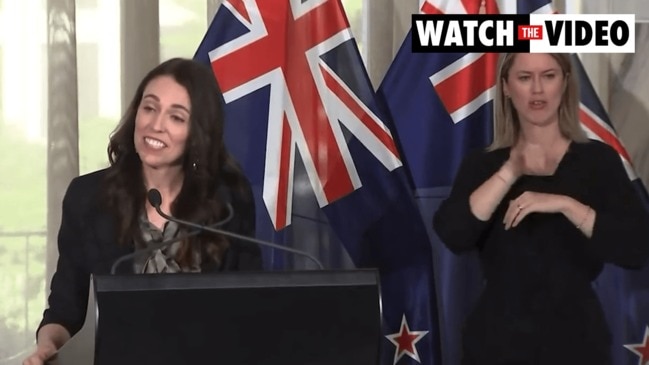
Coronavirus
Don't miss out on the headlines from Coronavirus. Followed categories will be added to My News.
Pfizer’s Covid-19 vaccine is more than 90 per cent effective in preventing symptomatic disease among children aged 5-to-11, the company said in a document released Friday that put forward its case for authorisation.
The new data was published on the website of the Food and Drug Administration, which has called an advisory panel of independent experts to meet Tuesday to vote on whether to green light the shot.
The analysis was based on around 2,250 trial participants, randomised to receive either the vaccine or a placebo, with data accruing until October 8. Most positive cases occurred when the Delta variant was dominant in the US and globally.
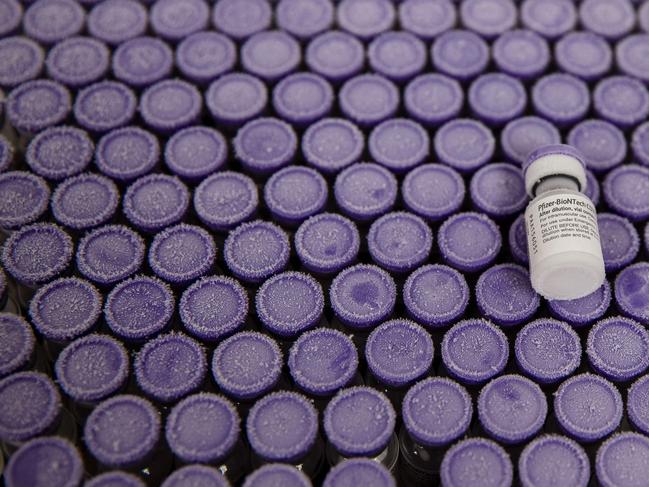
“VE (Vaccine Efficacy) against laboratory-confirmed symptomatic Covid-19 occurring at least 7 days after Dose 2 in evaluable participants without evidence of prior SARS-CoV-2 infection was 90.7 per cent,” the document said.
The vaccine was tested with a 10 microgram dose, while older age groups have received 30 micrograms. The doses were administered three weeks apart.
There were no cases of severe Covid and no cases of multisystem inflammatory syndrome in children (MIS-C), a rare but serious post viral condition.
Overall, 158 children aged 5 to 11 have died from Covid in the United States since the start of the pandemic, according to official data.
Pfizer argued that “although the mortality rate for Covid-19 in children is substantially lower than that in adults, Covid-19 was among the top 10 leading causes of death for children 5 to 14 years of age between January and May 2021 in the US.”
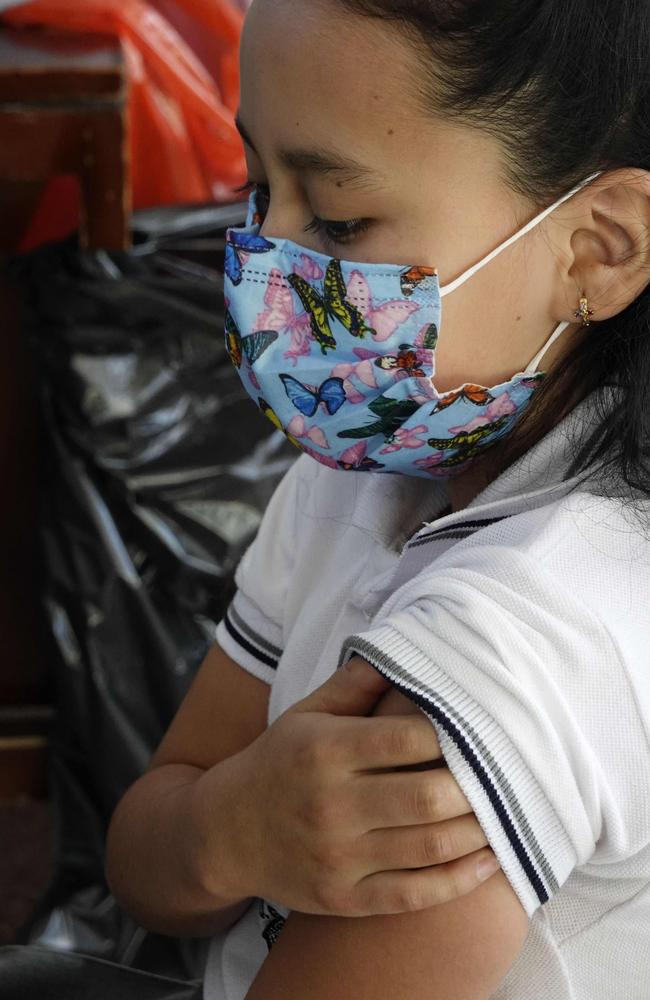
Safety data was examined among a total of 3,000 vaccinated participants, with a low incidence of severe events.
There were no cases of myocarditis or pericarditis — inflammation or inflammation around the heart — but there were not enough study volunteers to be able to detect highly rare side effects.
In any case, male adolescents and young men are thought to be a higher risk group for these conditions.
This is the first time Pfizer has released an efficacy estimate for its Covid vaccine in younger children, along with a detailed dataset.
Its earlier press statements only said the vaccine produced a robust immune response and was safe.
Throughout the pandemic, pharmaceutical companies have been making major announcements through press releases with scant data, a situation that has frustrated some experts.

A document containing the FDA’s own analysis should be released soon, and will give an indication of the agency’s own view on whether the benefits of the vaccine outweigh the risks for this group.
The administration of President Joe Biden has said it stands ready to roll out shots for the country’s 28 million 5 to 11-year-olds as soon as the vaccine is authorised by science agencies.
The FDA panel meeting will be followed by a panel convened by the Centers for Disease Control and Prevention (CDC) on November 2-3. If both committees vote in favour, authorisation could follow within days or weeks.
NZ SETS AMBITIOUS VAX TARGET
In New Zealand, PM Jacinda Ardern has announced the country will reopen when the vaccination rate hits 90 per cent as it battles a growing Delta outbreak.
The prime minister said when the target is met the country will use a traffic light system to ease public health restrictions.
But the new plans do not include specific targets for Maori and Pacific New Zealanders, whose populations are behind in vaccination rates.
And the country still has a way to go with just 59 per cent of the eligible population fully vaccinated as at Wednesday.
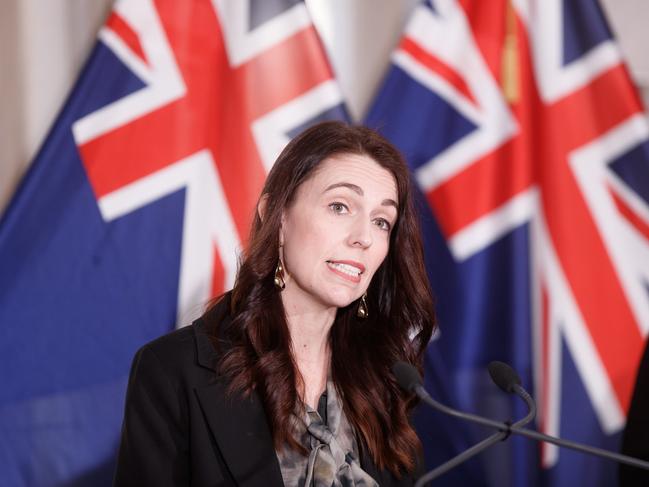
“We cannot ask vaccinated people to stay home forever. So now we need a new playbook to reflect a population protected from Covid,” Ms Ardern said.
She said the traffic light system would provide “a future where we want to continue to protect people’s lives, but also to live our lives”.
There were 129 new Covid cases in New Zealand on Friday – the biggest figure since the start of the pandemic.
MIX-AND-MATCH BOOSTERS COULD HELP IMMUNITY
The use of so-called “mix and match” Covid-19 vaccine boosters may give a stronger immune response than sticking to one type of jab, the EU’s drug watchdog said on Thursday local time.
The European Medicines Agency (EMA) said it was studying data to see if it will follow a decision by US authorities on Wednesday to allow the use of a different vaccine for follow-up shots.
The Pfizer-BioNTech, Moderna, Johnson & Johnson and AstraZeneca vaccines are authorised in the EU. So far only Pfizer is cleared for boosters in adults.
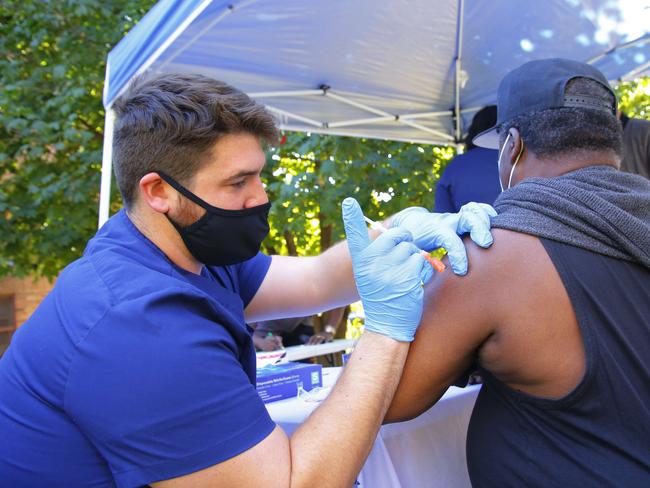
“We are seeing some promising results from studies that confirm that this approach would trigger, with certain vaccine combinations, a stronger immune response than when the same vaccine is used for an additional shot,” Marco Cavaleri, the EMA’s head of vaccine strategy, told a news conference.
Several countries have already approved Covid booster shots to increase immunity in people who have already been vaccinated but whose protection may have dipped after several months, although usually using the same type of vaccine.
A study released in the United States last week showed that people who have received the J & J vaccine — which like AstraZeneca uses viral vector technology — may benefit from a booster dose of a different, messenger-RNA vaccine such as Pfizer or Moderna.
Messenger RNA vaccines “seem to be working quite well” as boosters and “are really able to mount quite a robust immune response”, Mr Cavaleri said.
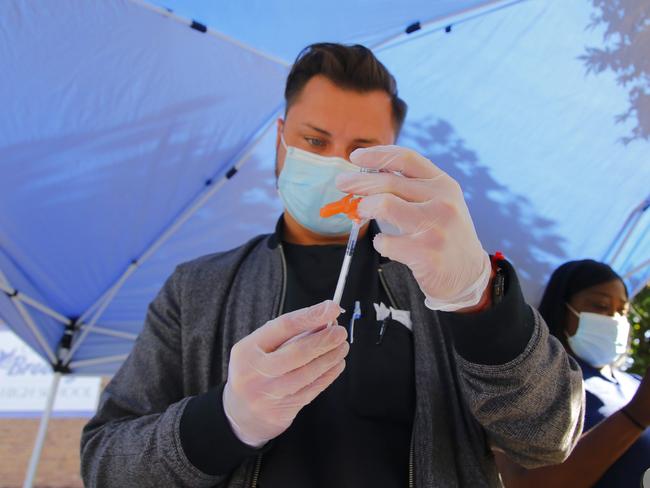
But Mr Cavaleri added that “overall it seems that the strategy is something that all types of vaccines could be benefiting from,” he added.
The Amsterdam-based EMA is also due to decide on October 25 whether to approve Moderna boosters, Cavaleri said.
The EMA meanwhile said it expects to decide within “approximately two months” whether to extend approval of the Pfizer jab to children aged 5-11, after its makers submitted data last week.
The regulator also expects to start a review next week of an oral Covid drug produced by the US pharmaceutical firm Merck, Mr Cavaleri said.
PFIZER BOOSTER SHOT ‘95.6 PER CENT EFFECCTIVE’
A booster shot of the anti-Covid-19 vaccine developed by Pfizer/BioNTech is 95.6 per cent effective against symptomatic infection, according to trial data published by the makers on Thursday.
The clinical phase three trial with “10,000 participants 16 years of age and older” showed “a relative vaccine efficacy of 95.6 per cent against disease during a period when Delta was the prevalent strain”, the companies said in a statement.
The study presented the “first results” of a booster trial, with a third shot of the vaccine demonstrating a “favourable safety profile”.

“These results provide further evidence of the benefits of boosters as we aim to keep people well-protected against this disease,” said Pfizer CEO Albert Bourla.
The preliminary results would be shared with regulatory agencies “as soon as possible”, the companies said in the statement.
Several countries have already approved Covid-19 booster shots to increase immunity in people who have already been vaccinated, but whose protection may have dipped after several months, per some studies.
In the United States, the federal Food and Drug Administration (FDA) approved a third dose in September for everyone aged 65 and up, as well as people at high risk of developing severe Covid.
The European Medicines Agency (EMA) approved a booster for over-18s at the beginning of October, allowing national regulators to decide which groups should be eligible first.
In Israel, authorities have gone further, approving booster shots for everyone aged 12 and over.
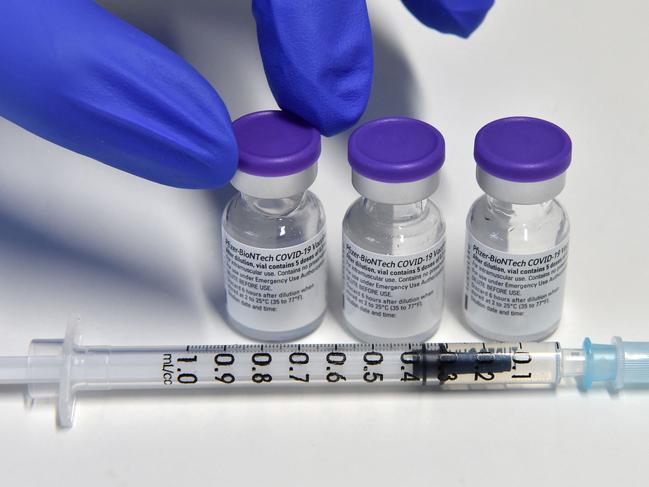
WHO UNVEILS SHOCKING HEALTH WORKER STAT
The World Health Organisation, meanwhile, said Thursday that 80,000 to 180,000 health care workers may have been killed by Covid-19 up to May this year, insisting they must be prioritised for vaccination.
A WHO paper estimated that out of the world’s 135 million health staff, “between 80,000 to 180,000 health and care workers could have died from Covid-19 in the period between January 2020 to May 2021”.
WHO chief Tedros Adhanom Ghebreyesus said health care workers needed to be immunised against the disease first, as he slammed the global inequity in the vaccine rollout.
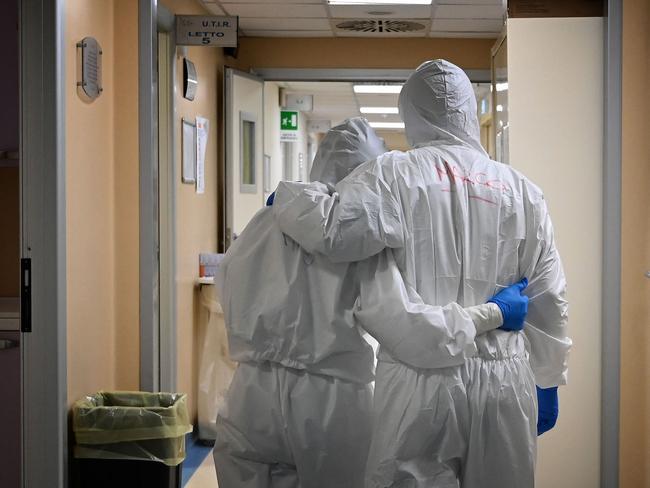
“Data from 119 countries suggest that on average, two in five health and care workers globally are fully vaccinated. But of course, that average masks huge differences across regions and economic groupings.”
“In Africa, less than in one in 10 health workers have been fully vaccinated. Meanwhile, in most high-income countries, more than 80 per cent of health workers are fully vaccinated.”
He added: “We call on all countries to ensure that all health and care workers in every country are prioritised for Covid-19 vaccines, alongside other at-risk groups.” Tedros said that more than 10 months on since the first vaccines were approved by the WHO, the fact that millions of health workers still had not been vaccinated was an “indictment” on the countries and companies controlling the global supply of doses.
Annette Kennedy, president of the International Council of Nurses, said the organisation grieved for all health care workers who had lost their lives — “many needlessly; many we could have saved”.
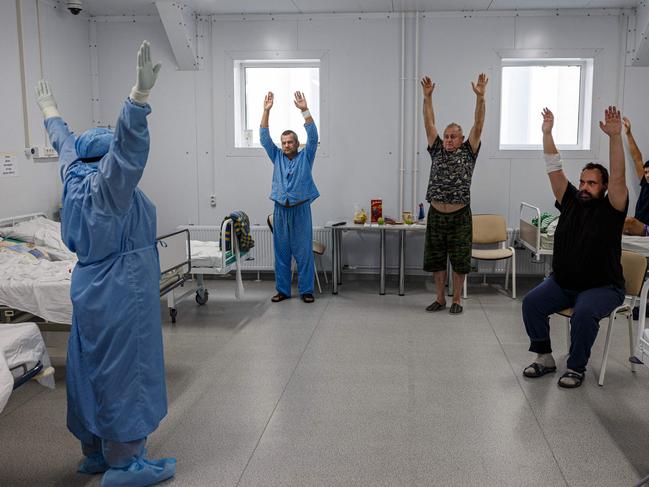
“It’s a shocking indictment of governments. It’s a shocking indictment of their lack of duty of care to protect health care workers who have paid the ultimate sacrifice with their lives,” she said.
Ms Kennedy added: “They are now burnt out, they are devastated, they are physically and mentally exhausted. And there is a prediction that 10 per cent of them will leave within a very short time.”
The WHO wants each country to have vaccinated 40 per cent of its population by the end of the year, but Tedros said 82 countries were now at risk of missing that target, chiefly through insufficient supply.
The novel coronavirus has killed at least 4.9 million people since the outbreak emerged in China in December 2019, according to a tally from official sources compiled by AFP, while nearly 242 million cases have been registered.
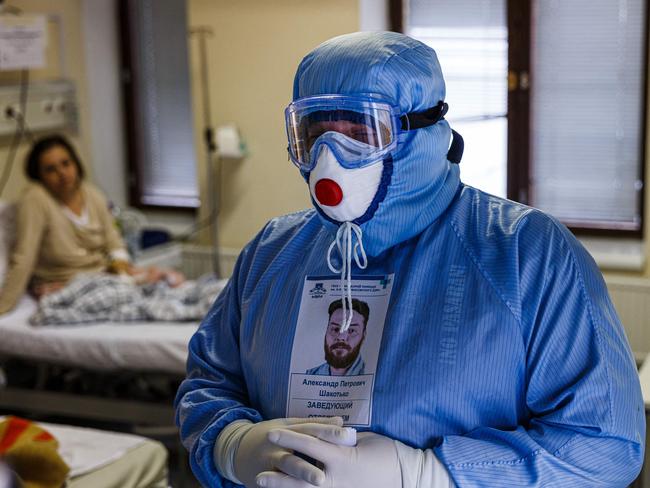
US LAYS OUT PLANS TO VACCINATE YOUNG CHILDREN
The US is prepared to start vaccinating children aged five to 11 against Covid-19 starting next month, a move that will make 28 million more Americans eligible for shots, the White House said on Wednesday local time.
US President Joe Biden’s administration said it had already set aside enough supply and partnered with 25,000 sites nationwide — including doctors’ offices, hospitals, pharmacies and even schools — in anticipation that regulators may soon authorise the Pfizer vaccine for kids.
“We expect the FDA and CDC decision on Pfizer’s COVID-19 vaccine for children ages five through 11 in the next couple of weeks,” White House Covid co-ordinator Jeff Zients told reporters, referring to the Food and Drug Administration and the Centres for Disease Control and Prevention.
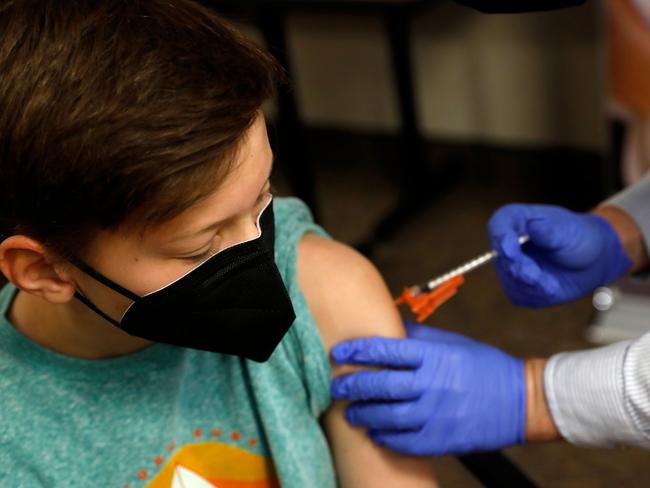
“We know millions of parents have been waiting for COVID-19 vaccine for kids in this age group, and should the FDA and CDC authorise the vaccine, we will be ready to get shots in arms.” The FDA will convene a panel of experts on the issue next week, followed by the CDC on November 2-3, with authorisation expected soon after.
SAFE AND EFFECTIVE
During a clinical trial, children in the 5-11 age group received a two-dose regimen of 10 micrograms, compared with 30 micrograms for older age groups. The shots were given 21 days apart.
The side effects were “generally comparable to those observed in participants 16 to 25 years of age,” Pfizer said in a statement, adding that the shots induced a robust antibody response.
Pain and swelling at the injection site have been among the most commonly reported side effects in people of all ages, along with headaches, chills and fever.
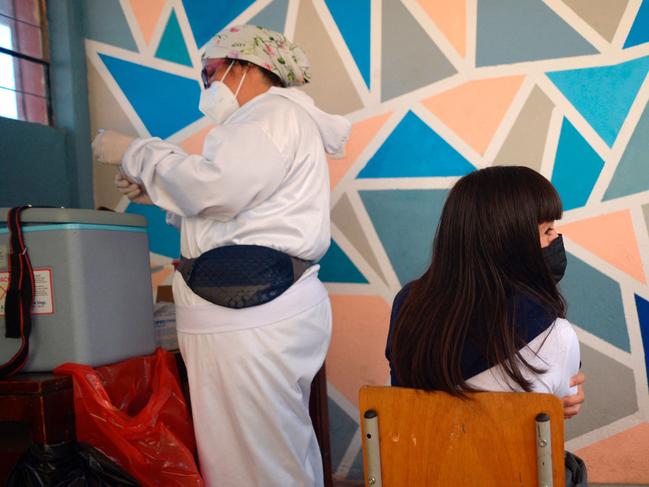
Pfizer made no mention of the rare side effect of myocarditis, an inflammation of the heart muscle that has been linked to the vaccine, mostly among adolescent males and those in their twenties.
The Pfizer-BioNTech vaccine has been granted full FDA approval for those aged 16 and up, and the FDA in May authorised its emergency use in children ages 12 to 15.
Experts say it is essential to vaccinate children to progress towards achieving population immunity against the disease.
While younger children are less likely to develop severe cases, they can still become sick and transmit the virus to the general population.
RISING VACCINE CONFIDENCE
Overall vaccine confidence in the United States has risen in recent months. As of Wednesday, 77.1 per cent of the currently eligible population aged 12 and up had received one or more doses of a Covid vaccine.
The differing risk-benefit profile for younger children nevertheless may present challenges in persuading some parents the shot is worthwhile.
The United States — officially the hardest-hit country in the world with more than 720,000 deaths — is emerging from its latest Covid wave, driven by the highly contagious Delta variant.
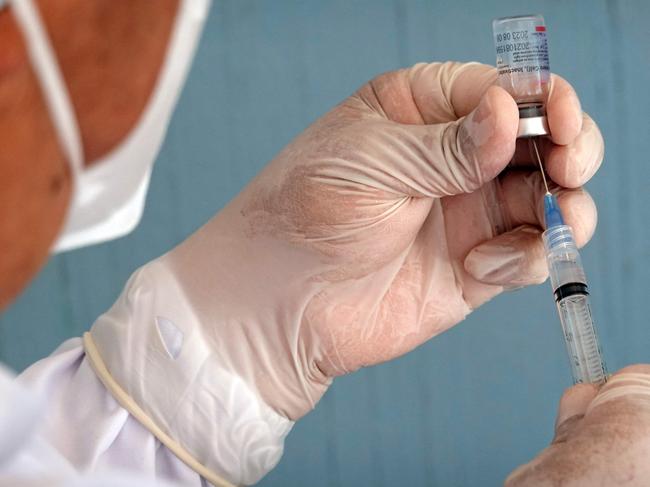
The seven-day-average of daily cases is around 75,500, down 16 per cent from last week.
Hospitalisations are averaging 6,000 per day while daily deaths are now around 1,200.
Experts anticipate cases may once again rise with the arrival of winter, particularly in the country’s northern states, as respiratory viruses — including others such as RSV and influenza — tend to thrive in colder weather.
Vaccination against Covid has been shown to significantly de-link cases from hospitalisations. A high level of population vaccination is deemed critical to protect those who are most vulnerable, such as the elderly and the immune compromised.

UK HEALTH LEADERS CALL FOR Covid CURBS
Meanwhile, healthcare leaders urged the British government on Wednesday local time to reinstate some coronavirus restrictions to ease pressures on hospitals because of spiralling case numbers.
But ministers remain opposed to reintroducing any curbs, arguing the situation is still far better than earlier this year and the country is learning to “live with the virus”.
A total of 223 deaths from Covid-19 were registered on Tuesday — the highest 24-hour toll since March — while there is mounting concern at daily case rates.
The country is averaging more than 40,000 new cases a day for the first time since the summer, and the number of patients admitted to hospital is increasing.
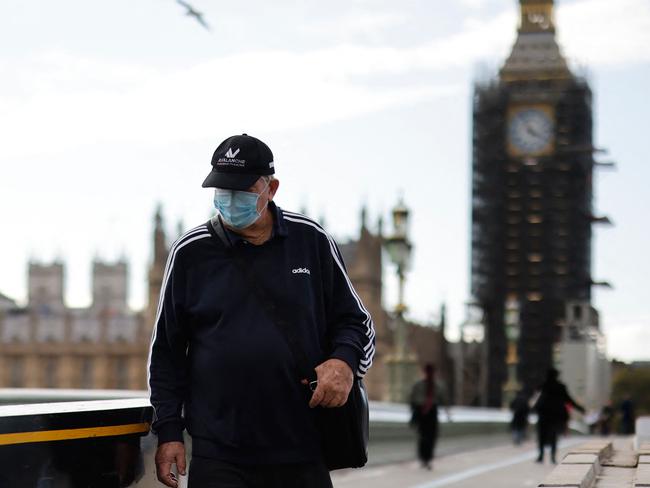
Matthew Taylor, head of the NHS Confederation representing the state-run health service in England, Wales and Northern Ireland, said hospitals were feeling severe pressure and action was needed as the busier winter period approaches.
“We’ve got a very particular problem over this winter, and we need to act,” he told Sky News.
Taylor said health leaders report the worsening Covid-19 situation means they are missing key targets in areas such as waits in emergency departments, ambulance response times and treatment backlogs.
“Is it better to act early and take measures which don’t stop the economy working — but I recognise they are inconvenient for people — or do we wait for things to get worse and possibly risk having to take more severe measures?” he added.
The British government, which lifted coronavirus restrictions in July, insists it is closely watching the statistics, which have been attributed to high numbers of infections in school-age children.
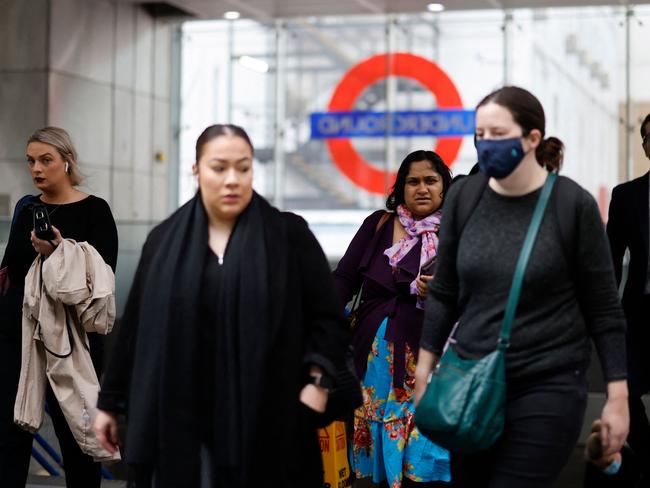
But it maintains the situation does not yet warrant a return to restrictions, such as compulsory indoor mask-wearing and working from home where possible.
“I don’t see any cause for changing the course at this minute,” Business Secretary Kwasi Kwarteng told the BBC. “This is a virus that we are learning to live with.
“Clearly any increase is concerning and we’re monitoring the data on a daily basis.
“But for now, we think that this policy is working,” he added, referring to the government’s vaccination campaign and latest offer of booster jabs to the more vulnerable.
Britain’s stubbornly high infection rates contrast sharply with its European neighbours and have prompted fresh questions of the decision to relax all restrictions.
It has mainly used the Oxford-AstraZeneca vaccine, which was shown to be less effective at preventing infection from the Delta variant than the mRNA vaccines such as Pfizer-BioNTech and Moderna predominantly used in Europe.
The country also began its vaccination program earlier, prompting questions about whether immunity is now waning, similar to Israel’s experience.
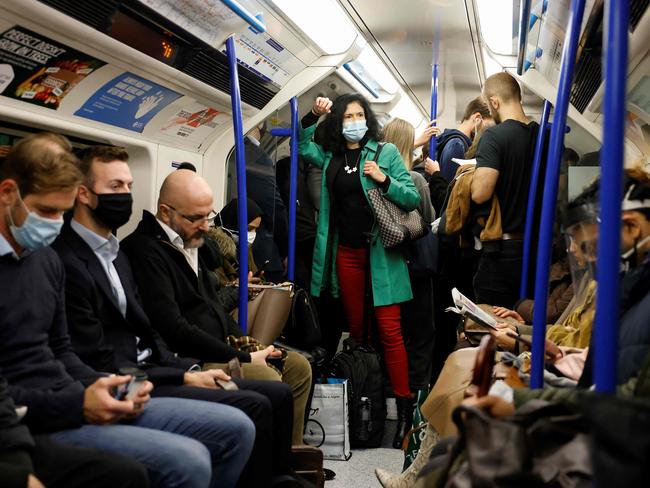
PUTIN ORDERS VIRUS RESTRICTIONS AS DEATHS SOAR
Russian President Vladimir Putin on Wednesday ordered a nationwide week-long paid holiday to curb Covid infections in Europe’s worst affected country and urged Russians to show “responsibility” and get vaccinated.
Mr Putin approved a government plan to declare a non-working week across the country from October 30 as Russia registered a record 1,028 coronavirus deaths in a single day.
“The main aim is to protect the lives and health of our citizens,” the 69-year-old Kremlin chief said during a televised meeting.
He said the severity of the outbreak in Russia was linked to the country’s vaccination rates that are “unfortunately” low.
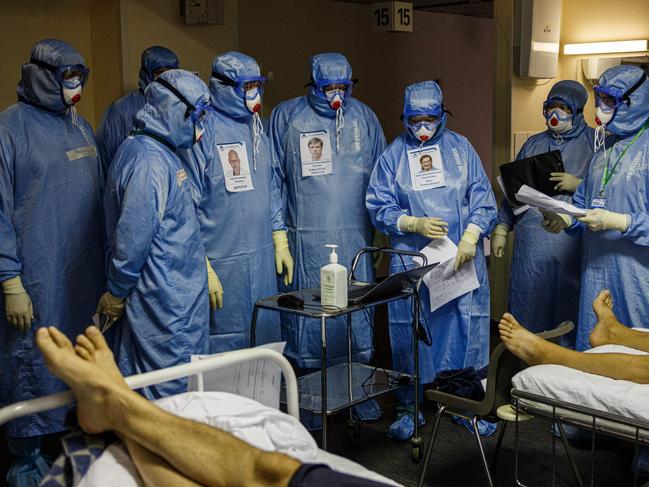
Infection rates have soared in recent weeks amid a stalled vaccination campaign, with only 35 per cent of the country fully inoculated despite several widely available vaccines including Sputnik V.
Mr Putin said he was surprised by how many Russians were refusing the vaccine, even among his “close friends.” “It’s strange. People with a good education, scientific degrees … I just don’t understand what is happening.”
Mr Putin has made numerous pleas for Russians to get Covid jabs, and on Wednesday once again called on people to get immunised.
“Please, show responsibility,” he said.
On Wednesday, the country recorded over 34,000 new virus cases and a total of 226,353 fatalities — the highest death toll on the European continent.
Russian authorities have been accused of vastly downplaying the scale of the pandemic, and Mr Putin told regional authorities not to under-report the number of virus cases, calling it “dangerous.”
Mr Putin has introduced paid holidays during coronavirus peaks before, most recently in May. The new non-working week will coincide with national school holidays.
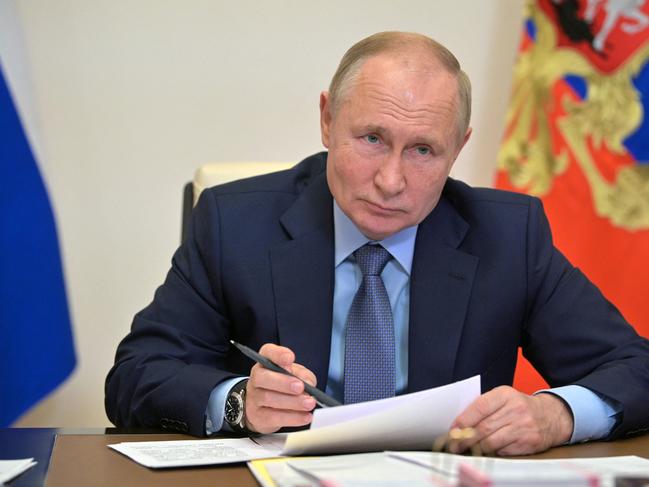
Deputy Prime Minister Tatiana Golikova said the new restrictions were tough but necessary.
“Recently, we have been losing more than a thousand of our citizens a day. These are terrible figures,” she said. She asked Russians not to travel between regions so as not to “worsen” the situation.
The Russian leader insists that the country has handled the pandemic better than most countries, but even top officials have recently voiced concern.
Pyotr Tolstoy, deputy chairman of parliament’s lower house, said at the weekend that the authorities had “completely lost” an information campaign on coronavirus.
“There is no trust in people to go and vaccinate themselves, it is a fact,” he said.
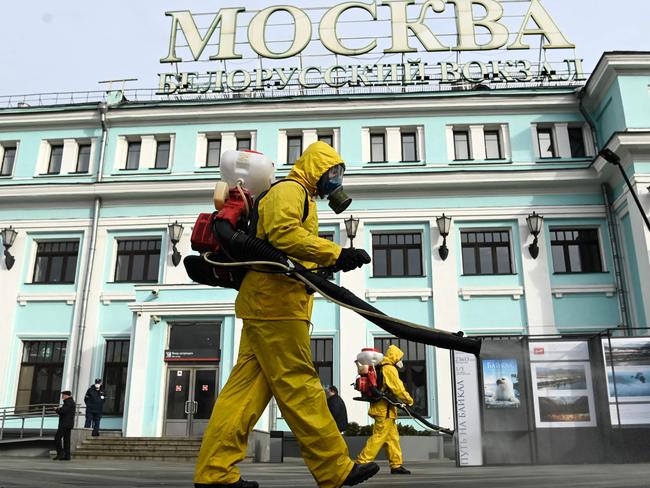
NOVAVAX STRONG CONTENDER FOR BOOSTER JABS
The Novavax vaccine purchased by Australia is emerging as a strong candidate for booster jabs with new research showing it has fewer side effects.
The company told a Spanish medical conference overnight Tuesday that Oxford university research had found it was well tolerated when given as a second dose of vaccine after either an AstraZeneca or Pfizer shot.
The research showed the vaccine was the “least reactogenic” (had fewer side effects) of the mixed dose regimes, Filip Dubovsky, MD, Executive Vice President, Chief Medical Officer, Novavax said.
It may also “offer advantages over other widely used Covid vaccines in inducing neutralising antibodies against the Delta and Beta variants,” he said.
There is growing evidence that mixing and matching vaccines may produce a stronger immune response.
Australia has purchased 51 million doses of Novavax which is due to be delivered late 2021. However, the company has yet to receive regulatory approval for the vaccine anywhere in the world.
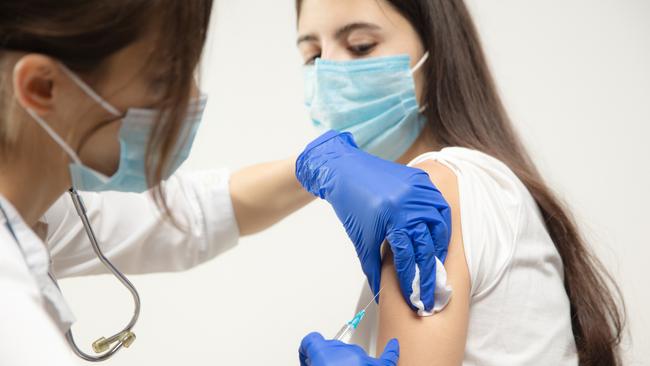
This latest study comes after earlier research found it had an efficacy rate of efficacy of 96.4 per cent against the original Wuhan variant of Covid and was 86.3 per cent against the more infectious Alpha variant that was circulating in the UK last year.
A Mexican trial showed it provided 100 per cent protection against moderate and severe disease and 90.4 per cent efficacy overall.
The new Oxford study involved 1070 adults aged 50 or older who received their first vaccination during the prior eight to 12 weeks.
The participants then received one of four different vaccines as a second dose including 359 who received Novavax.
The study reported on reactogenicity (safety) and immune responses, comparing those who received two doses of the same vaccine to those who received doses of two different vaccines.
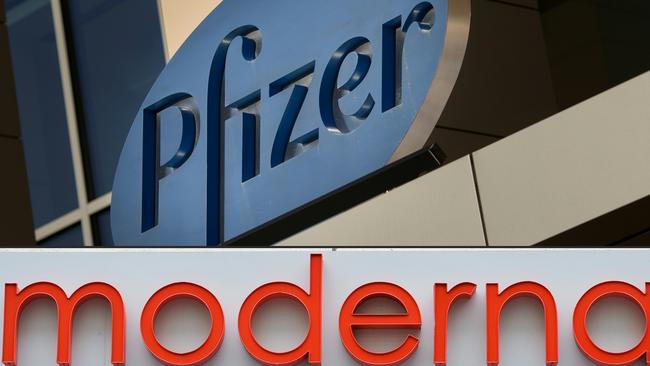
Early safety studies showed the most commonly reported side effects to Novavax were pain and tenderness at the injection site and around two in three people experienced headache, fatigue and myalgia.
Most reactions were mild or moderate, but were greater following the second dose.
So far Australian regulators have approved booster doses of Covid vaccines only for immunocompromised people.
Government advisory bodies are expected to make a ruling on booster doses for the elderly and frontline health workers in coming weeks.
The Australian Medical Association is calling for the process to be sped up as there are fears of waning vaccine efficacy among many frontline health workers who received vaccines almost eight months ago.
Multiple studies have found the efficacy of the Pfizer vaccine declines rapidly after four months and the US, the UK and Israel have approved booster doses.
The FDA in the US is expected to rule on the need for booster doses of the Moderna vaccine this week.
UNVAXXED OVER 60S ORDERED INTO LOCKDOWN
Moscow has ordered unvaccinated people over 60 to stay at home for four months, amid a surge in Covid-19 cases and deaths in Russia.
On Tuesday Russia reported 1015 coronavirus-related deaths, the highest single-day toll since the start of the pandemic, as well as 33,740 new infections.
“The number of people hospitalised with a severe form of the disease is increasing every day,” Moscow Mayor Sergei Sobyanin wrote on his website.
“The most alarming thing is the situation with Covid infection among the older generation,” he added, saying over-60s accounted for 60 per cent of patients, nearly 80 per cent of people on ventilators, and 86 per cent of deaths.
The new measures will come into effect from October 25.
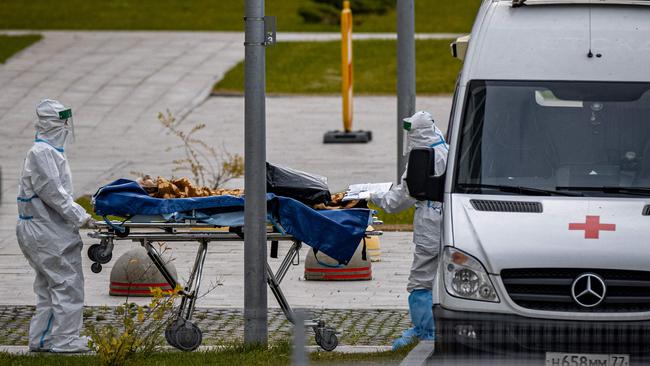
At the national level, the government is considering keeping people off work for a week to reduce social contact in a bid to lower the tide of infections.
President Vladimir Putin is expected to decide on Wednesday which government measures put to him should be implemented to curb the spread of the virus across the country.
Over the past few weeks, daily death tolls have been surging and topped 1000 for the first time over the weekend amid sluggish vaccination rates, lax public attitudes toward taking precautions and the government’s reluctance to toughen restrictions.
Last year, Russia boasted it had become the first country in the world to authorise a coronavirus vaccine and proudly named the shot Sputnik V after the world‘s first satellite.
About 45 million Russians, or 32 per cent of the country‘s nearly 146 million people, have been fully vaccinated.
However, while Mr Putin has underlined the importance of broad vaccination, he emphasised that it should remain voluntary.
UNITED STATES TO ALLOW ‘MIX AND MATCH’ VACCINE BOOSTER
The US Food and Drug Administration (FDA) is preparing to allow “mix and match” coronavirus vaccine boosting, in which people get a different additional shot to the dose they initially received, US media has reported.
Citing sources familiar with the situation, the New York Times said the FDA might make the announcement on Wednesday local time when it is also expected to authorise boosters for the Moderna and Johnson & Johnson vaccines.
A preliminary study released in the United States last week showed that people who have received the J & J vaccine may benefit from a booster dose of a different, messenger-RNA vaccine such as Pfizer or Moderna.

But multiple reports quoted people familiar with the discussions as saying one shot may not be recommended over another, and the FDA could say using the same vaccine is preferable when possible.
“People should generally get the same vaccine as their initial series,” a federal official told the Washington Post.
Proponents of mixing and matching point to its benefits in terms of simplifying vaccine rollout, and ensuring those who need boosters can get them regardless of which jab they initially had.
“From a public health perspective, there’s a clear need in some situations for individuals to receive a different vaccine,” Amanda Cohn, a high-ranking Centres for Disease Control and Prevention official, told the New York Times.

In July the World Health Organisation’s chief scientist Soumya Swaminathan said mixing and matching vaccines was “a bit of a data-free, evidence-free zone”.
The US study on boosters, which has not yet been peer-reviewed, has several limitations.
The number of participants was small, and the immune response could evolve beyond the 15 days observed during the study.
In the United States, over-65s, adults with high-risk medical conditions, and those in jobs where they are frequently exposed to the virus are eligible to receive booster shots.
The World Health Organisation’s vaccine advisers recommended last week that people with weakened immune systems should be offered an additional dose of all WHO-approved Covid-19 vaccines.
But the WHO wants a moratorium on booster doses for the general population until the end of the year to prioritise first doses in the dozens of nations starved of vaccines.
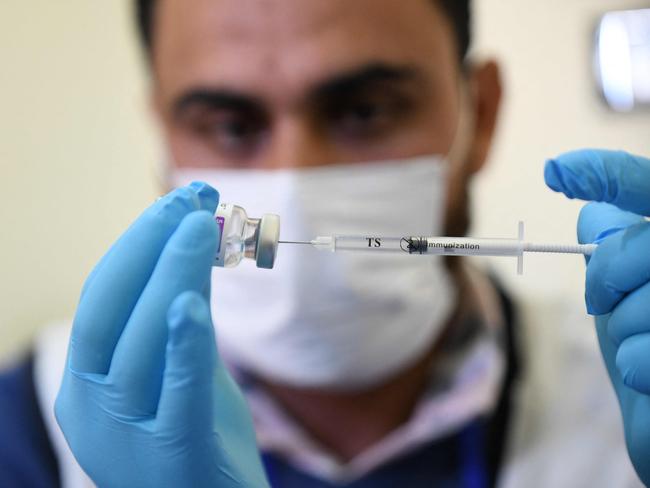
PFIZER REQUESTS OK FOR KIDS JAB IN CANADA
Pfizer-BioNTech submitted an authorisation request to Health Canada for the use of its Covid-19 vaccine in children aged 5-11, the companies and the Canadian government said.
“This is the first submission Health Canada has received for the use of a Covid-19 vaccine in this younger age group,” it said in a statement.
The authorisation request is based on data from trials conducted on 2,268 children in this age group for whom the dosage was lowered to 10 micrograms per injection — three times less than the standard dose — which the company says is “the preferred dose” for 5-11 year olds.
This same Pfizer-BioNTech vaccine is approved in Canada for ages 12 and up. Health Canada said that it will only authorise the use of the vaccine if the independent and thorough scientific review of all data submitted confirms that the benefits outweigh the risks with this group.
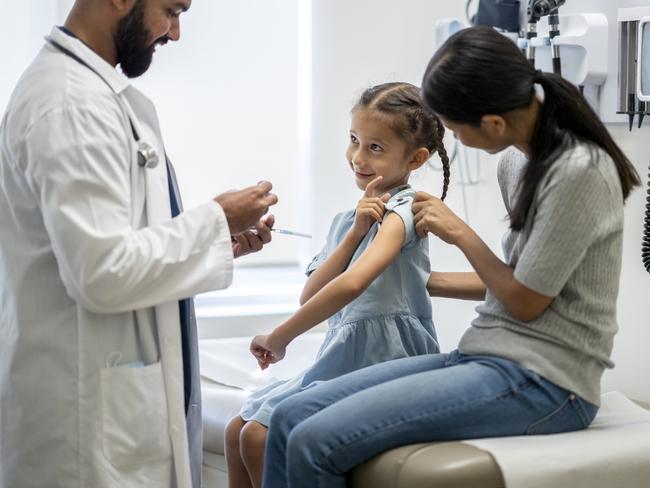
The Canadian ministry also indicated that other manufacturers also were testing their vaccines on children of different age groups.
Earlier this month, Pfizer and BioNTech laboratories made the same request for 5-11 year olds in the United States.
Childhood immunisations are raising questions around the world. Many countries vaccinate adolescents from the age of 12, but very few do so below that age.
In recent months, the World Health Organisation (WHO) has insisted that the urgent issue was to immunise the population of poor countries before children and adolescents in rich countries.

WORKING HOLIDAY VISAS FOR BRITS EXTENDED
Meanwhile, Australia is set to let more British people in on working holiday visas and for a longer stay in a bid to fend off any possible labour shortages brought in by pandemic lockdowns.
Trade and Tourism Minister Dan Tehan said key to free-trade agreement talks with the UK was extending the working holiday visa age limit from 30 to 35 years and from one year to three years or two years for a rural area.
“We understand as we open up we’re going to have to be very conscious of the need to be able to provide the skills needed to drive the reopening and make sure we rebound as strongly as possible,” Mr Tehan said in London after the latest round of FTA negotiations, according to The Australian.
The new FTA is not expected to come into force until July 1.
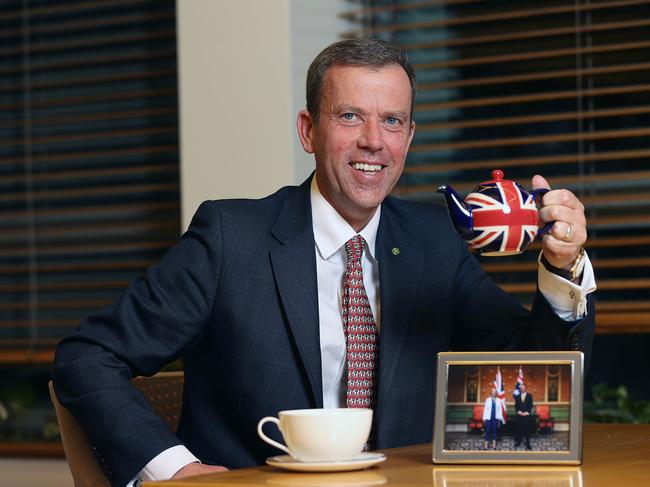
Originally published as Coronavirus world: Pfizer says vaccine for younger children 90 per cent effective




